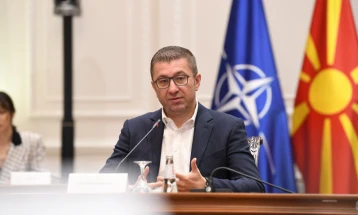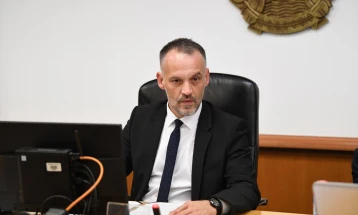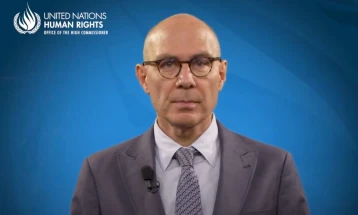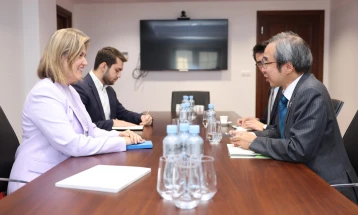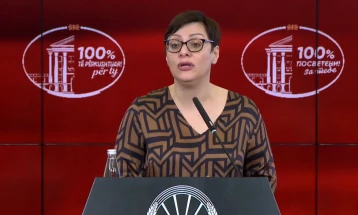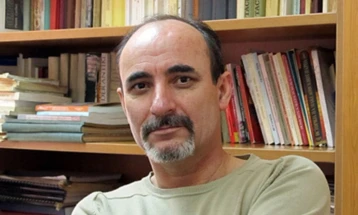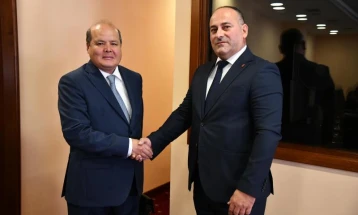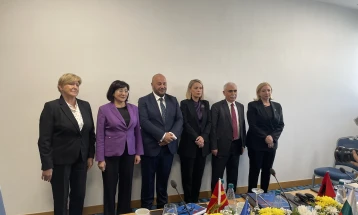Michel for ENR/MIA: EU mustn't allow Western Balkans to enter into "grey zone"
- The European Council head said the bloc must be more agile in making more progress as regards enlargement, stressing that the candidate countries also have homework and know exactly what they should do.
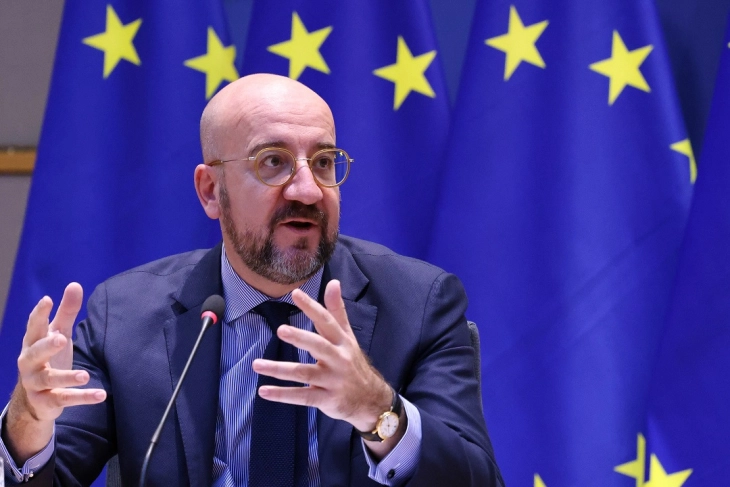
Brussels, 25 October 2024 (MIA) – Having in mind latest developments, I’m still absolutely convinced, now more than ever, that EU membership candidates could be ready to join the bloc by 2030, European Council President Charles Michel said in an interview with the European Newsroom (ENR), which MIA is part of.
If we want more stability, better security, prosperity in the future, he stressed, we mustn’t allow the Western Balkan countries to enter a ‘grey zone’, where others might play games to destabilize these countries and their institutions, to destabilize the EU and to destabilize the values and democratic principles.

According to Michel, it would be absurd if the EU didn’t accelerate the accession process of the candidate countries, but at the same time the process isn’t only the responsibility of the Union.
“We have a homework we must finish. That’s why we have the Strategic Agenda to be prepared for the future enlargement, which we know it will have consequences, including in view of financial solidarity and the decision-making process,” said Michel, adding European leaders are aware that the EU should prepare for future enlargement despite the political challenges.
The European Council head said the bloc must be more agile in making more progress as regards enlargement, stressing that the candidate countries also have homework and know exactly what they should do.

“They should align with the EU legislation on one hand all the while improving how they manage the fight against corruption to be sure we share the same legal framework,” Michel stated.
This is what is being asked of them to do regarding the reform that need implementation, he said, but they also need to settle disputes, which is a serious challenge.
“I’d say disputes are probably the hardest and sometimes disputes between them and some of our member countries are the most challenging,” said Michel.

According to him, these disputes, sooner or later, could be solved easy if they looked toward the future and if the EU was perceived as a priority.
“They need to be solved because they hinder making progress,” said the President of the European Council, adding it is matter of political will.
Unlike the Western Balkan countries, according to him, Ukraine, Georgia and Moldova have been facing ‘some other challenges’, but EU leaders have made ‘a visionary choice’ when deciding to grant these three countries a candidate status.

“There’s no reason for postponing. On the contrary, the more we postpone, the more we allow others that don’t share the same values, same principles and interests with us to use the postponing to get us into trouble,” Michel said in the ENR/MIA interview.
Regarding the prospect of changing the principle of unanimity in the decision-making involving enlargement, Michel said the prevailing opinion is that consensus is an obstacle in this process and that this rule should be changed.
He noted that most decisions in the Union are passed with qualified majority and the principle of consensus is limited to only a handful of topics, including foreign affairs, defense, security, etc.

“But I’d like to warn that if we rush with cancelling the principle of unanimity, the result would be or might be that we won’t do what is necessary in building joint positions,” said Michel stating it would cause ‘some frustration’ and division within the Council of the EU, which could become ‘the new normal’ for the Union.
According to him, things aren’t ‘black and white’ and it cannot be said that consensus is a disaster and majority decision-making could be better, instead, a solution in the middle should be found.
“I believe it should be possible to identify several principles to enact the right to veto when key national interests are threatened,” Michel said noting that ways must be yet found to prevent misusing the right to veto.
Photo: ENR/MIA
